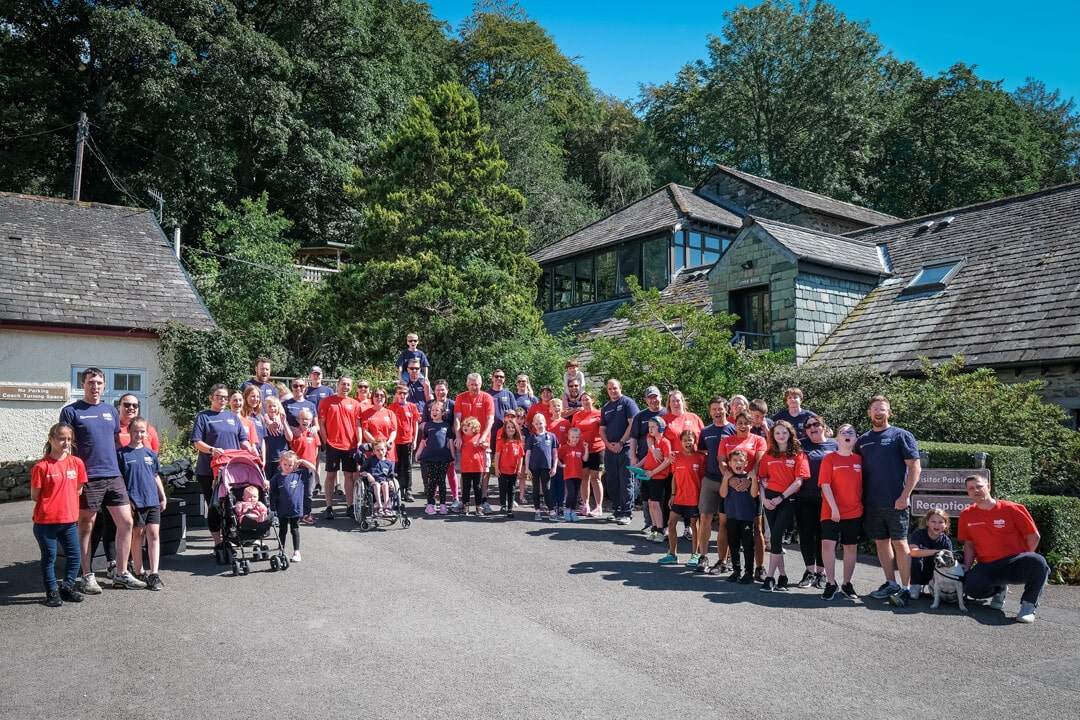A major government initiative encouraging disabled children to become more active is failing to have an impact, according to new research.
Government guidelines issued last year recommend that disabled children should exercise for 20 minutes each day – but research from outdoor activity centre Calvert Lakes indicates that the majority of disabled children are not doing so.
The Calvert Lakes survey covered 812 disabled children, aged 11-16. The findings were as follows:
- The majority (65%) of disabled children exercise for less than 20 minutes each day and are falling short of the government’s recommended exercise level.
- 23% of disabled children exercise for between 20 minutes and one hour each day.
- 9% of disabled children exercise for between 1 and 2 hours each day.
- 3% of disabled children exercise for more than 2 hours each day.
The research also found that the for the majority (58%) of disabled children, their disability is a barrier to accessing outdoor spaces.
Calvert Lakes is part of the Lake District Calvert Trust, a charity founded in 1976 to enable people with disabilities to benefit from outdoor activities in the countryside.
Sean Day, Chief Executive at the Lake District Calvert Trust said the research was further evidence of the need to prioritise activity opportunities for disabled children.
“This research makes it clear that work still needs to be done to help disabled children become more physically active,” said Sean. “In many cases, families need greater financial and practical support in order to make outdoor activities accessible for their children.
“In publishing their guidelines last year, the government encouraged schools, parents, carers and healthcare professionals to communicate and promote their importance to enable appropriate physical activity opportunities for disabled children. With activity levels well below the recommended level, this message is more important than ever.”
Earlier this year, a report by Calvert Lakes revealed that the majority of disabled people are abandoning plans for outdoor activity breaks due to the cost-of-living crisis. The research found that 55% of disabled people are forsaking outdoor activity breaks in 2023 due to financial concerns. Even more alarmingly, 93% said this would impact on their physical health and 92% believed it would impact on their mental health.
Continued Sean:
“It is widely accepted that the Covid-19 pandemic disproportionately impacted disabled people.
“The Office for National Statistics has also confirmed that disabled people in the UK are being hit even harder by the cost-of-living crisis than non-disabled people.
“If disabled people cut back on outdoors activities due to financial pressures their physical and mental health will suffer.”
To combat the financial pressures facing visitors, the Lake District Calvert Trust utilises bursary money awarded by generous benefactors. This funding is, where possible, passed on to guests, enabling those who require financial assistance to receive a percentage of the total cost of their break.
“Bursary funding forms an integral part of our operation and enables us to offer help to people with disabilities who without it would not be able to take part in the specialised activities we provide,” continued Sean.
“With the cost-of-living crisis, demand is higher than ever as many schools, families and individuals struggle to fund that extra dimension to their lives that can make all the difference.
“Prices at the centre are subsidised by our own fund-raising efforts, but are still beyond the means of some organisations, families or individuals who would not be able to attend without the extra help from bursary funding. This has become of paramount importance in the current national situation. Our ability to continue to provide much needed respite, and a safe and secure place for people with disabilities to enjoy the unique services we provide, has never been more important.”
